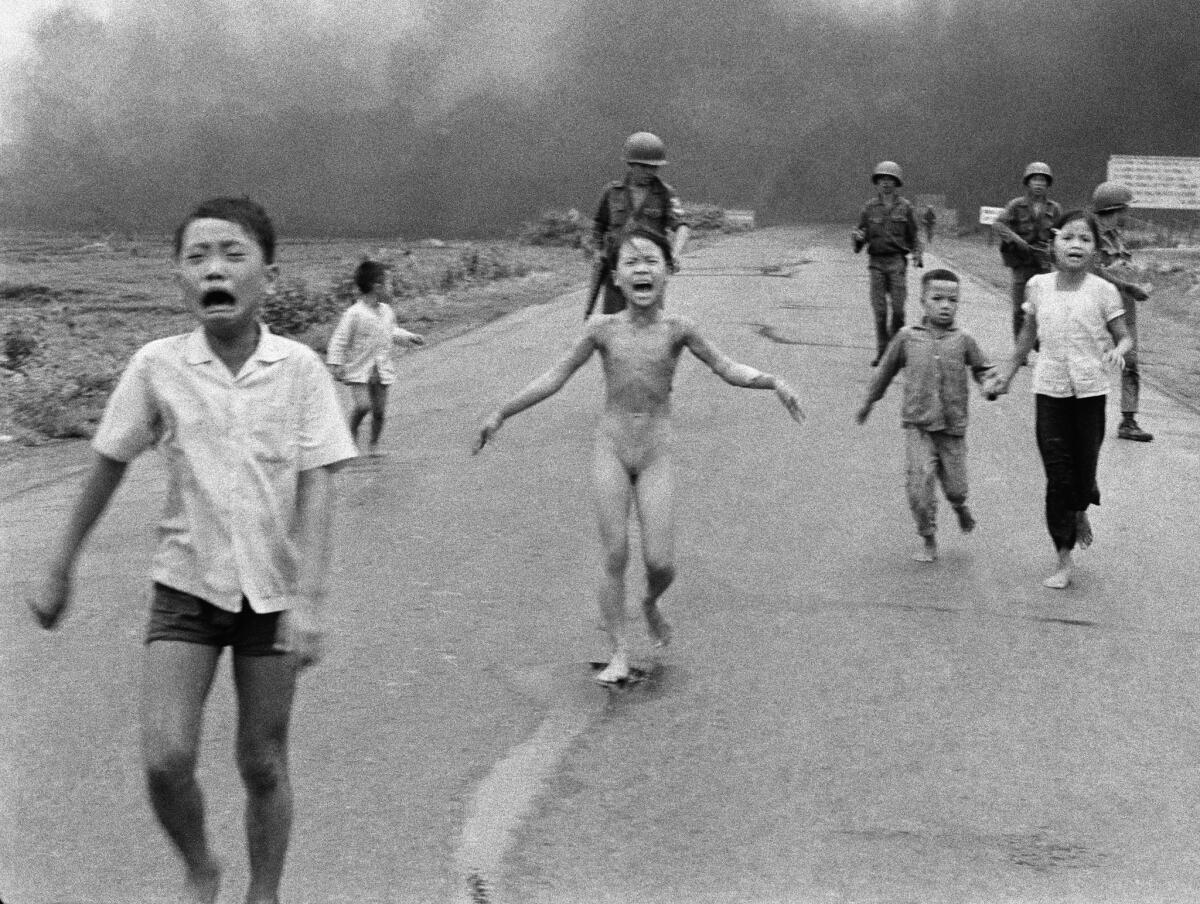Coalition files lawsuit challenging Arizona’s ‘nude photo law’

- Share via
A coalition of booksellers and others involved in publishing and distributing images is suing the state of Arizona to overturn a law designed to protect people from the unwanted display of nude photos.
The law, which took effect on July 24, is known as “the nude photo law,” was designed to prevent the display of nude images without the permission of the subject. It is also designed to block the practice of revenge porn, the posting of an identifiable private image with the intent of causing harm to a former lover.
The suit, which was filed on Tuesday in federal court by the American Civil Liberties Union, the ACLU Foundation of Arizona and the law firm Dentons US LLP, which is general counsel to the Media Coalition. The state had no immediate response and has 30 days to file an answer in court
According to the suit, the law makes it a crime to “intentionally disclose, display, distribute, publish, advertise, or offer a photograph,” or other image of “another person in a state of nudity or engaged in specific sexual activities” if the distributor “knows or should have known” that the subject depicted has not consented.
Republican state Rep. J.D. Mesnard, the law’s author, defended the measure, which he said was designed to prevent harm. He characterized the ACLU suit as “a little bit of stretch.”
“We are talking specifically about images like a sexual act that are portrayed without a person’s consent,” he told the Los Angeles Times. “I know they [the plaintiffs] are talking about exceptions and I am open to that. The law has some exceptions, such as medical images, but it does get tricky.”
Mesnard said lawmakers considered how to craft additional exemptions to cover public interest, but ran into problems since there was no definition of public interest on which everyone agreed.
The groups say that the law is overly broad and violates constitutional guarantees of free speech.
“The law criminalizes far more than such offensive acts, and it is not limited to “revenge,” the groups argue. “A prosecutor need not prove that the person publishing the photograph intended to harm the person depicted. Likewise, a person who shares a photograph can be convicted of a felony even if the person depicted had no expectation of privacy in the image and suffered no harm. The law applies even when the person in the picture is not recognizable, and the law is not limited to ‘porn’ -- it criminalizes publication of nude and sexual images that could not possibly be considered pornography, let alone obscene.”
The groups contend that the law, as written, makes no exemption for qualities such as artistic, educational or historic merit, and they cite examples of photographs that would be banned. One such photograph, they contend, is the iconic picture of an unclothed Vietnamese girl fleeing a napalm attack during the war. The picture, which won a Pulitzer Prize, could lead to prosecution, the groups maintain.
“Arizona’s law clearly violates the First Amendment, because it criminalizes protected speech,” Lee Rowland, staff attorney with the ACLU’s Speech, Privacy, and Technology Project, told the Los Angeles Times. “States can address malicious invasions of privacy without treading on free speech, with laws that are carefully tailored to address real harms. Arizona’s is not.”
Rowland said she was unaware of any arrests under the law.
The suit also alleges that booksellers and libraries could also face prosecution for selling works with such pictures. Newspapers could be punished for showing some of the photographs of abuse in Abu Ghraib prison during the war in Iraq, it said.
“This law puts us at risk for prosecution,” said Gayle Shanks, owner of Changing Hands Bookstore, one of the plaintiffs, which has been in operation for more than 40 years in Tempe and recently opened a location in Phoenix. “There are books on my shelves right now that might be illegal to sell under this law. How am I supposed to know whether the subjects of these photos gave their permission?”
In addition to Changing Hands Bookstore, the booksellers bringing the lawsuit include: Antigone Books in Tucson; Bookmans, which has stores in Tucson, Phoenix, Mesa and Flagstaff; Copper News Book Store in Ajo; and Mostly Books in Tucson.
They are joined by Voice Media Group, which publishes numerous newsweeklies; the American Booksellers Foundation for Free Expression; the Assn. of American Publishers; the Freedom to Read Foundation; and the National Press Photographers Assn., whose members have produced images that may spark charges under the law.
Follow @latimesmuskal for national news
More to Read
Sign up for Essential California
The most important California stories and recommendations in your inbox every morning.
You may occasionally receive promotional content from the Los Angeles Times.














